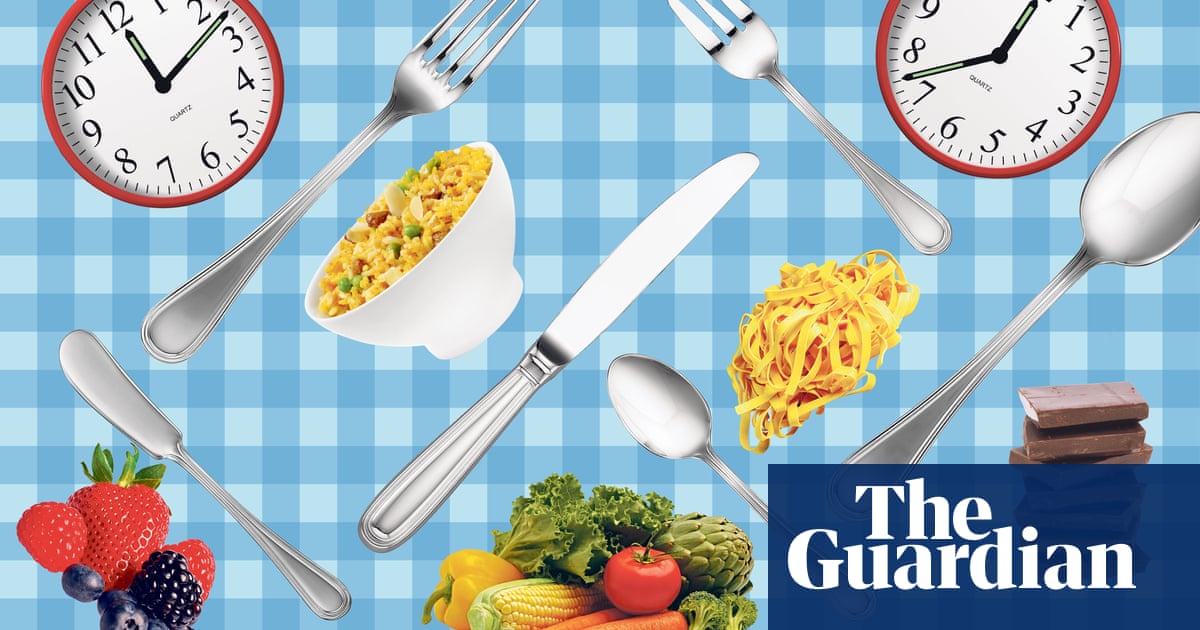
RIYADH: During the month of Ramadan, Muslims fast from sunrise to sunset to discipline their body and soul, and empathize with the less fortunate.
The benefits to be reaped from fasting can extend beyond Ramadan — intermittent fasting is practiced around the world, with many extolling the benefits.
Both Ramadan fasting and other forms of intermittent fasting can help control food cravings and, if practiced correctly, aid in reducing insulin resistance, weight loss and kickstarting cellular repair processes in the body.
Dr. Roaa Hussein, internal medicine specialist and gastroenterology fellow at the International Medical Center in Jeddah, told Arab News that “fasting in Ramadan for around 12 hours without any calorie intake gradually reduces appetite by normalizing a certain hormone responsible for feeling hungry.”
Fasting can also decrease the levels of excess fat in your body, she added, cautioning that this requires the individual to maintain a healthy caloric intake during non-fasting hours.
More importantly, this leads to a reduction of cholesterol and in blood sugar levels, which can help in preventing type 2 diabetes and heart disease, according to the doctor.
“Throughout the years, studies have shown that fasting can decrease the risk of cancers, given that cancer cells cannot produce while you have high levels of ketones produced by the liver when you are fasting,” Hussein said.
Ketones are a chemical produced by the liver when it breaks down fat, and scientists have discovered that fasting increases ketone levels.
Hussein added that fasting allows for the renewal of cells which help in preventing conditions associated with ageing, including diabetes, hypertension, heart disease, and neurological diseases such as Parkinson’s disease and Alzheimer’s disease.
A study published by Harvard Health in 2019 highlighted the potential issues that may come up with arbitrary intermittent fasting.
In the article, the chair of the department of nutrition at the Harvard T.H. Chan School of Public Health, Dr. Frank Hu said,:“It is human nature for people to want to reward themselves after doing very hard work, such as exercise or fasting for a long period of time, so there is a danger of indulging in unhealthy dietary habits on non-fasting days.”
Hussein went on to advise the best foods to eat for the pre-fast meal called suhoor.
“Skipping suhoor will make you get fewer calories but will also starve your body of fibers, vitamins, minerals, and necessary proteins needed to maintain its function,” she said.
She added that starting off iftar — the evening meal — with dates and water is best.
Fitness expert and personal trainer Malak Kandiel, based in Jeddah, noted the main difference between fasting for Ramadan and intermittent fasting is that the latter allows the person to have zero-calorie drinks. She added that this can be more convenient for those seeking weight loss as a goal as it can help them fill up and curb their cravings.
“There are three main kinds of intermittent fasting. Beginners can start with 12 hours like Ramadan fasting, intermediates fast for 16 hours, and advance for 18 hours,” Kandiel said, noting that these hours usually include time spent asleep.
“You get to choose what hours best work for you. For example, if you’re a beginner you stop eating starting 8 p.m. till 8 a.m.,” she added.
Kandiel said to reap the benefits of intermittent fasting it is best to choose high-fiber foods, cut out processed sugar, avoid fried food, and not drink high calorie drinks.
You can check the recommended healthy caloric intake based on your weight, height, and other factors by visiting Saudi Arabia’s Ministry of Health website, although it is recommended that any person looking to embark on a new health regimen consult a certified nutritionist beforehand.
While practicing intermittent fasting for life is not recommended, many Muslims do fast twice a week in line with religious customs.
“From a religious perspective and from (the) sunnah of (the) Prophet Mohammed, if you want a good and healthy fast, it is preferred on Mondays and Thursdays,” Kandiel explained.
Hussein added her tips to enjoy healthy and comfortable fasting, saying: “Too many caffeinated beverages will lead to more dehydration and make you feel more thirsty during fasting hours.”
She added that the brain needs 15-20 minutes before it signals to the stomach that it is full, “so eating too quickly will lead to eating more calories and more portions of food, which can lead to gain weight, heaviness, and heartburn.”











